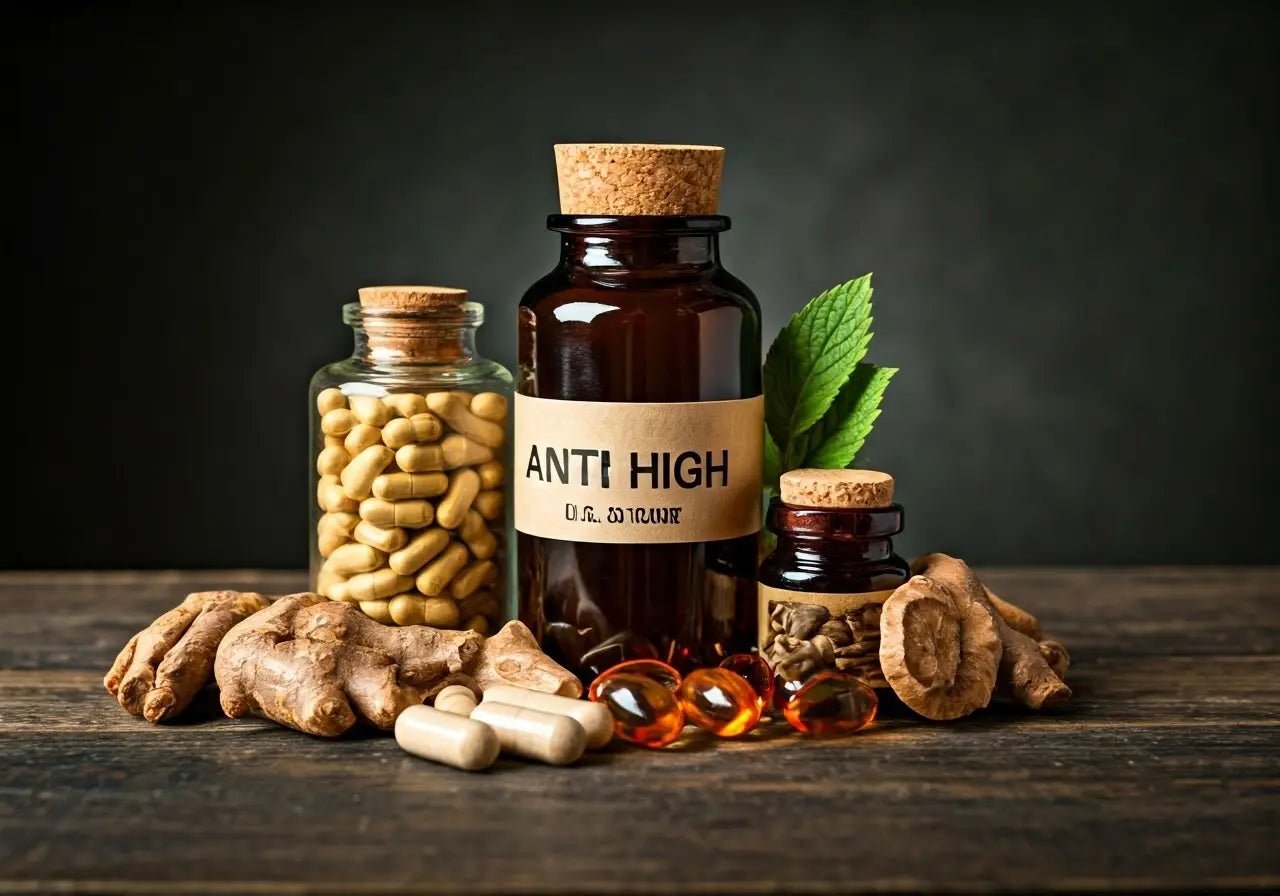
With the increasing legalization and use of cannabis, many individuals seek ways to manage or mitigate its effects. There’s a growing interest in understanding the science behind products that can help reduce the high from weed. In this blog, we’ll explore how these products function and the science backing their effectiveness.
Understanding How Cannabis Affects the Brain
Cannabis affects the brain by interacting with the endocannabinoid system, which consists of receptors that regulate mood, appetite, memory, and perception. The primary component responsible for the ‘high’ is THC, which binds to receptors in the brain, altering normal function. Understanding this mechanism is essential to finding ways to reduce these effects. The psychoactive impacts stem predominantly from THC’s ability to bind with CB1 receptors, which are abundant in regions of the brain responsible for cognition, pleasure, and the reward system. This binding disrupts the normal release of neurotransmitters, leading to the varied experiences associated with marijuana consumption.
The interaction between THC and the brain’s receptors is not uniform but can vary greatly among individuals. Factors such as the person’s genetic makeup, frequency of use, and even the potency of the cannabis strain can influence the intensity of the high. This variability poses a challenge when trying to standardize methods to counteract the high. However, experts suggest starting with understanding one’s own limitations and gradually exploring ways to moderate the high to gain better control over the experience.
An Overview of Products Aimed at Reducing Weed High
The market offers a range of products designed to alleviate the intensity of a cannabis high. These include CBD products, which counteract THC effects, terpenes like limonene found in citrus fruits, and black pepper with its beta-caryophyllene content. Each product works differently to mitigate the psychoactive effects of THC. For instance, the compound CBD has received significant attention due to its ability to affect cannabinoid receptors in the brain differently than THC. Unlike THC, CBD does not produce psychoactive effects, and it may even reduce the high caused by THC by blocking specific receptors.
In addition to CBD, other substances like beta-caryophyllene, a terpene found in black pepper, can be particularly effective. Chewing black peppercorns can provide quick relief due to this compound’s potential anxiety-reducing effects. Users have reported that using such natural remedies can ease the unpleasant symptoms often associated with the peak of a high. Moreover, products like High-Not are specially formulated supplements that incorporate these plant-based ingredients to offer potential relief from overwhelming THC effects, easing both the high and associated discomforts.
The Role of CBD in Counteracting THC Effects
CBD, or cannabidiol, is a non-psychoactive compound found in cannabis. Unlike THC, it doesn’t produce a high and may actually moderate THC’s effects by blocking or modifying its interaction with brain receptors. This balance helps users experience a calmer, less intense high. Evidence suggests that CBD can act as an antagonist to CB1 receptors, dampening the activation caused by THC, thus reducing its psychoactive consequences. For many, incorporating CBD into their cannabis regimen has been a game-changer, allowing them to enjoy the benefits of cannabis with more control over the intensity.
The versatility of CBD makes it a popular choice for those wishing to ease their cannabis experience. Available in various forms such as oils, tinctures, and edibles, users can easily integrate CBD into their routine. Research continues to highlight the possible benefits of this compound, not just for managing high but also for its potential therapeutic properties. Whether used to counteract the effects of THC or simply to enhance overall well-being, CBD remains at the forefront of cannabinoid research and consumer interest.
How Terpenes Can Influence the High
Terpenes are aromatic compounds in plants, including cannabis, that not only affect flavor and aroma but may also influence the high. Terpenes like limonene and myrcene have been noted for their potential to reduce anxiety or enhance relaxation, thus moderating the cannabis experience. These compounds, which can also be found in many fruits and herbs, interact with cannabinoids in what researchers call the ‘entourage effect.’
Different terpenes offer distinct advantages: limonene, common in citrus peels, is known for its uplifting properties, potentially counteracting the lethargy associated with high dosage THC. Meanwhile, myrcene, often found in hops, mangoes, and thyme, may enhance the body-high, creating a soothing effect for the user. Understanding and experimenting with different terpenes can be a part of a broader strategy to tailor the cannabis experience. Pinene is another terpene worth noting, valued for its cerebral clarity and anti-anxiety attributes.
Simple Home Remedies for Reducing Intensity of Weed High
Besides commercial products, there are simple home remedies that people use to feel more grounded during a high. Consuming foods rich in terpenes, drinking lemon juice, or chewing on black peppercorns can provide quick relief and help decrease the feeling of being too high. Small changes in diet and hydration can also make a significant difference. Drinking water is essential, especially to counteract the notorious cottonmouth or dry mouth effect of cannabis. Staying hydrated can help maintain normal bodily functions and alleviate some symptoms of overconsumption.
These home remedies work as they often contain compounds that influence cannabinoid receptors or help speed up the body’s metabolism of THC. Foods with pinene, such as pine nuts, or limonene, found in lemon peels, may subtly affect the body’s response to THC, sometimes offering mental clarity or easing physical concerns like nausea. Incorporating these foods when consuming cannabis can serve to balance or lessen the unintended intensity of the high. In the comfort of one’s home, simple steps can turn a potentially overwhelming experience into a more enjoyable and manageable one.
Managing Cannabis Effects with Science
Understanding how to manage the effects of cannabis not only provides users with more control but also enhances the overall experience. Science-backed products can help reduce the intensity of a weed high and offer a safer consumption journey. Whether you’re seeking a milder experience or need to return to clarity, knowing about these options adds an extra layer of reassurance.








